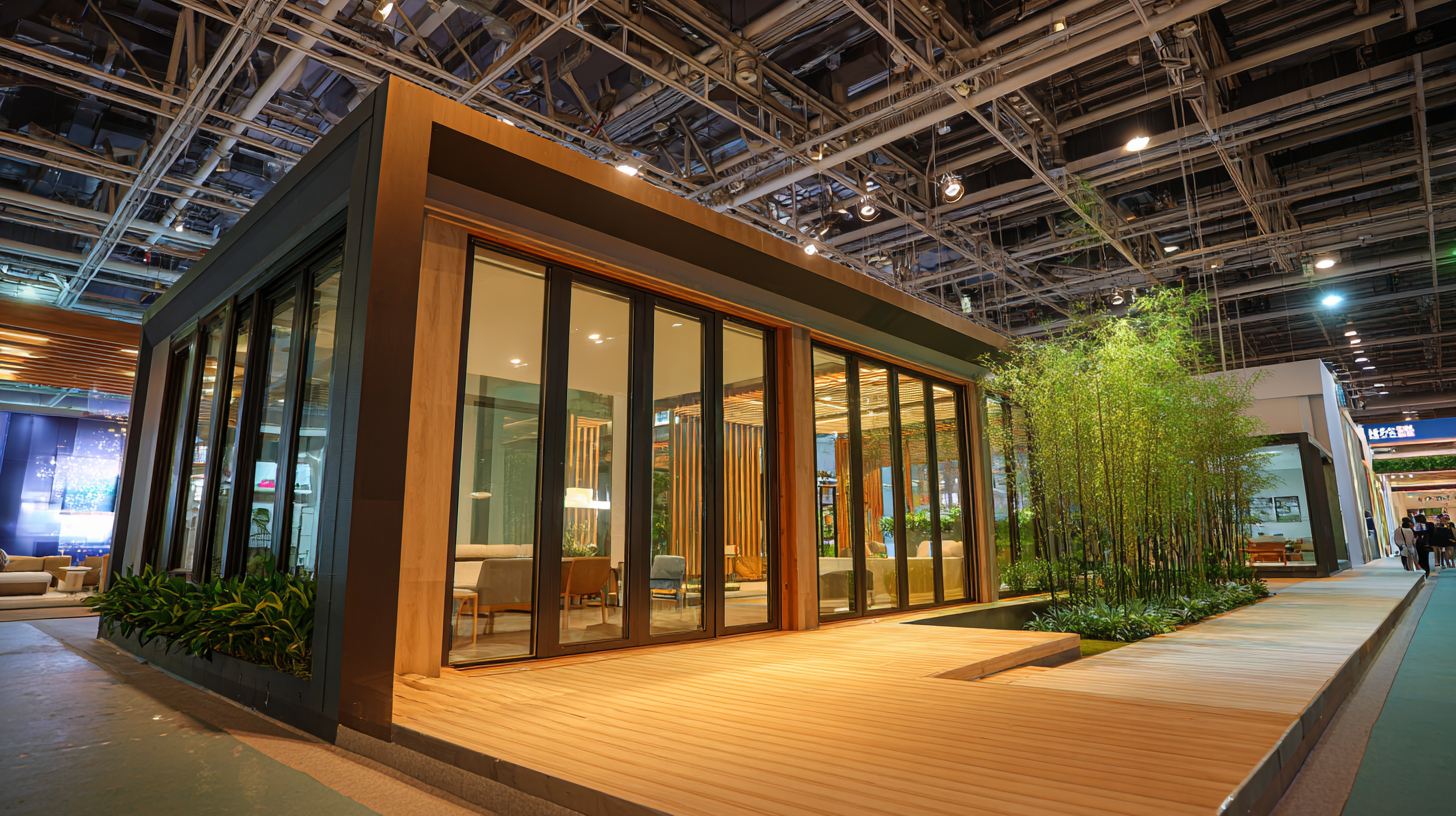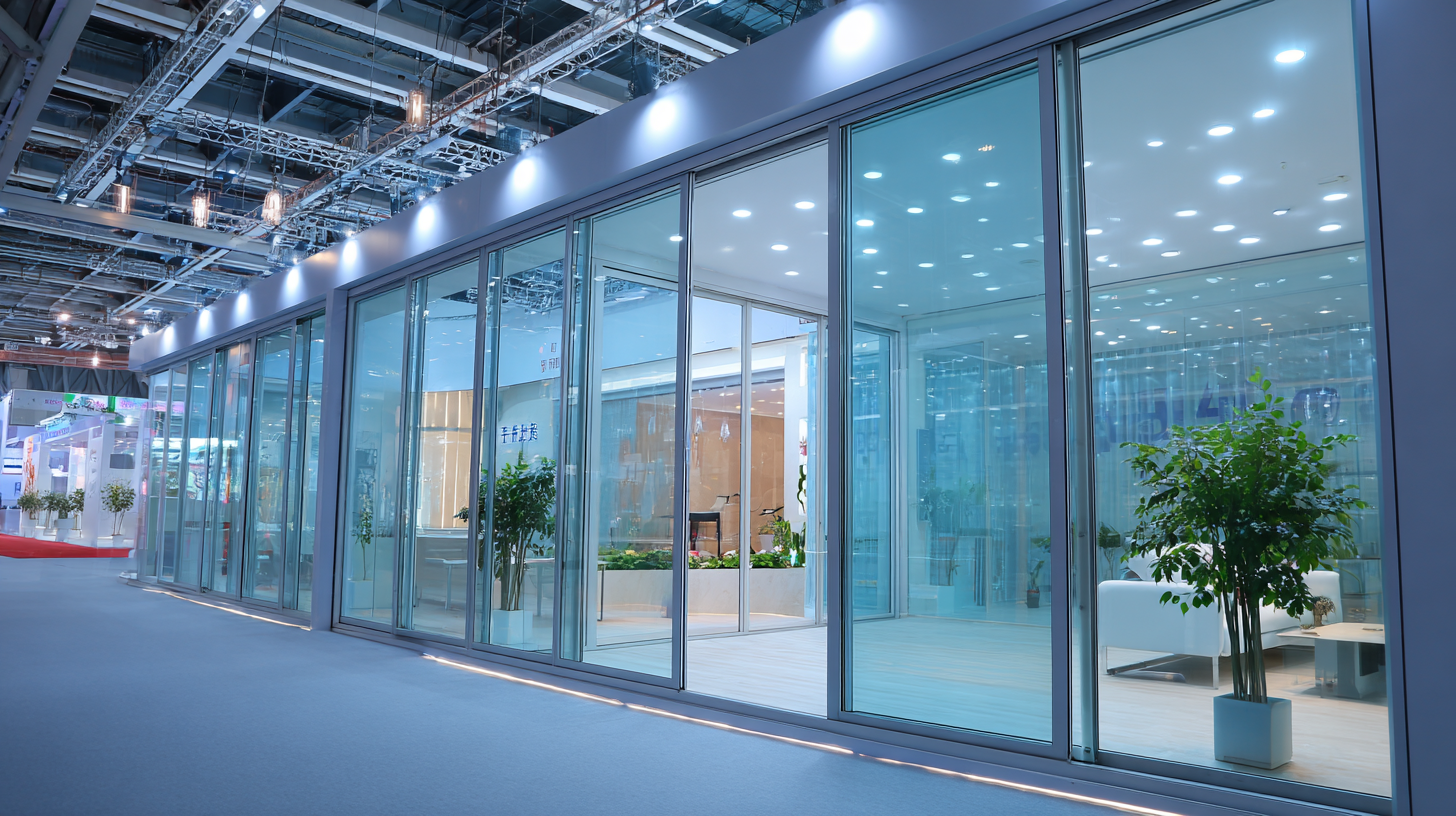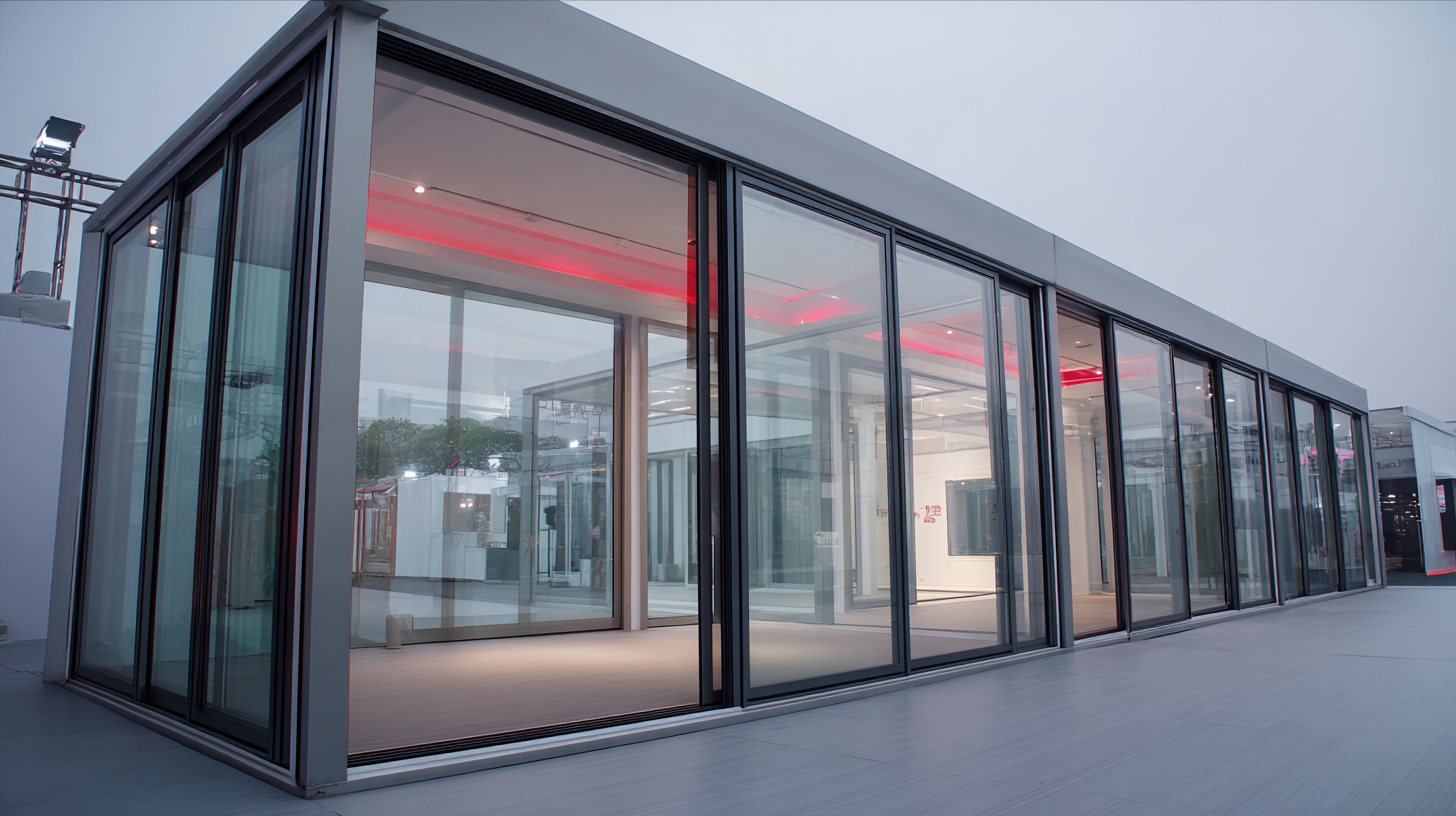Serving Minnesota & Iowa for over 25 years
Reviews
The Future of Sliding Door Installation at the 138th Canton Fair in China 2025
The 138th Canton Fair in China, set to take place in 2025, promises to be a pivotal event in the realm of construction and interior design, with a particular focus on innovations in sliding door installation. As the industry evolves, so does the demand for versatile and efficient design solutions that enhance both functionality and aesthetic appeal in residential and commercial spaces. This fair will showcase cutting-edge technologies and methods that streamline the installation process, ensuring faster and more sustainable practices that cater to the modern consumer's needs. With a growing emphasis on seamless transitions between indoor and outdoor environments, advancements in sliding door installation will take center stage, allowing stakeholders to experience firsthand the latest developments in materials, designs, and automation. Participants can expect valuable insights into how these innovations will shape the future of accessibility and space utilization in various architectural contexts.

Emerging Trends in Sliding Door Design and Technology at the 138th Canton Fair
At the upcoming 138th Canton Fair in 2025, the sliding door industry is set to showcase innovative designs and technologies that are shaping the future of installation practices. Emerging trends highlight a significant shift towards smart sliding doors equipped with IoT capabilities. According to a recent industry report by MarketsandMarkets, the global smart door market is projected to reach $100 billion by 2026, driven by increasing demand for home automation and energy efficiency. This trend is reflected in the latest designs, which not only focus on aesthetics but also emphasize functionality and user convenience.
In addition, sustainability is becoming a key consideration among manufacturers. A report from the Global Renewable Energy Agency indicates that eco-friendly materials used in sliding door production could reduce carbon footprints by up to 30%. At the Canton Fair, attendees will witness a variety of sliding doors crafted from recycled materials and energy-efficient components, which cater to an eco-conscious consumer base seeking to balance style with environmental responsibility. This intersection of design innovation and sustainability promises to drive the future of sliding door installation forward, setting new benchmarks for the industry.
Market Analysis: Growth Rate and Demand for Sliding Doors in 2025
The sliding door market is projected to experience notable growth in 2025, aligning with the broader trends observed in the global door and window market. With the overall market size anticipated to reach substantial figures, the demand for sliding doors is expected to surge, fueled by residential and commercial developments. Factors such as urbanization and a growing preference for modern design will likely contribute to this upward trend, reflecting a shift towards more versatile and space-efficient solutions in both new constructions and renovations.
Moreover, the compound annual growth rate (CAGR) for sliding doors indicates a promising outlook. As consumers become increasingly aware of the benefits of energy efficiency, aesthetics, and space optimization that sliding doors offer, their adoption is expected to rise. The 138th Canton Fair in 2025 will serve as a key platform for manufacturers and suppliers to showcase innovative designs and technologies, further driving interest and investment in the sliding door segment. With market dynamics shifting towards heightened demand, opportunities for growth in the sliding door installation sector appear favorable.
Sustainable Materials and Eco-Friendly Innovations in Sliding Door Manufacturing
As the 138th Canton Fair in China approaches in 2025, the spotlight is set to shine on eco-friendly innovations in sliding door manufacturing. The industry is increasingly shifting towards sustainable materials that not only reduce environmental impact but also enhance consumer appeal. Manufacturers are now exploring alternatives like bamboo, reclaimed wood, and recycled metals, which serve as both functional and aesthetically pleasing choices for modern sliding doors.
Tips for manufacturers looking to incorporate sustainable materials into their sliding door products include conducting thorough research on local suppliers of eco-friendly resources and evaluating the lifecycle of materials used in production. Additionally, integrating energy-efficient processes during manufacturing can further minimize the carbon footprint. By adopting these practices, companies can meet the growing demand for green solutions while positioning their brand as a leader in sustainability.
Moreover, innovations in technology are allowing for the design of sliding doors that utilize eco-friendly coatings and finishes, which not only ensure durability but also contribute to a healthier indoor environment. As consumers become more conscious of their choices, it is essential for manufacturers to highlight the benefits of using sustainable materials in their marketing strategies, thereby establishing a strong connection with environmentally aware customers.
Impact of Automation and Smart Home Integration on Sliding Door Installation Practices
The upcoming 138th Canton Fair in China in 2025 is set to showcase significant advancements in sliding door installation, particularly through the lens of automation and smart home integration. As technology evolves, the traditional methods of installation are being transformed by robotic systems and AI-driven tools, allowing for more efficient and precise installations. This shift not only reduces labor costs but also enhances safety and quality control throughout the process, demonstrating a future where time-consuming manual installation techniques could soon be obsolete.

Moreover, the integration of smart home technology is redefining how sliding doors function within residential and commercial spaces. With advancements in IoT (Internet of Things), sliding doors are increasingly equipped with features such as remote access control, automated opening and closing mechanisms, and enhanced security systems. These innovations not only increase convenience for users but also promote energy efficiency and accessibility. As these trends gain momentum at the Canton Fair, industry professionals will have the opportunity to explore how automation and smart technology will shape the future of sliding door installations, paving the way for a seamless and intelligent living environment.
Future Challenges for Sliding Door Installers: Skills and Training Needs Ahead of 2025
As we approach the 138th Canton Fair in 2025, the sliding door installation industry is poised for significant transformation. The rapid integration of artificial intelligence into various sectors demands that sliding door installers adapt quickly to new technologies. Skills that were once taken for granted—such as manual installation techniques—are evolving to include digital proficiency, as installers begin to engage with AI-driven tools and solutions.

Tips for installers include: first, prioritize ongoing education in both practical skills and technology applications; second, seek peer collaborations that can provide insights into best practices and the latest innovations; and finally, leverage online resources and workshops to stay current with emerging industry trends. As the future unfolds, these skills will be vital to meet the increasing demands of consumers and ensure efficient installation processes.
Looking ahead, the need for specialized training programs that address both technical skills and new technology adoption will become increasingly critical. Companies that recognize this shift will be better positioned to empower their workforce, creating a culture of innovation that not only enhances productivity but also fosters an environment where installers feel confident in embracing new challenges.
